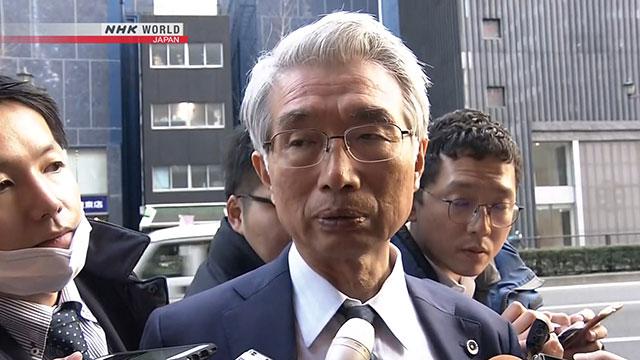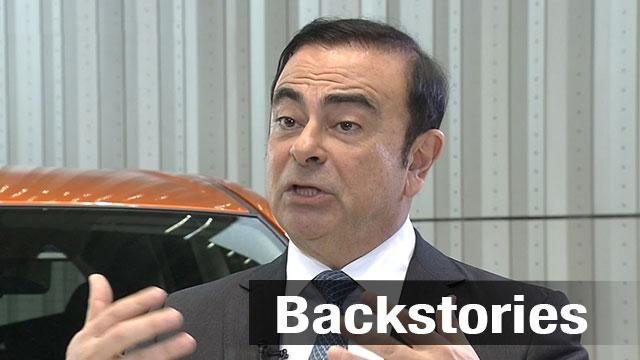Ghosn must post a relatively high bail of one billion yen, which is equivalent to around nine million dollars, before he can be released. The amount of bail set by a court is typically in line with a defendant's financial situation.
Japan's record bail amount
The highest ever bail set in Japan was two billion yen, or 18 million dollars. It was set for the former chairman of a major meat wholesaler in a product mislabeling case. In another case, a high-ranking member of an organized crime group had to pay 1.5 billion yen, or 13.5 million dollars.
Former Livedoor president Takafumi Horie posted 500 million yen, around 4.5 million dollars, in connection with an accounting scandal. And investment fund manager Yoshiaki Murakami, who was indicted for insider trading, paid 700 million yen, or just over 6 million dollars, for bail.
Detailed bail conditions
Junichiro Hironaka, who heads Ghosn's defense team, explained the detailed conditions attached to his bail.
He says the long list includes not being allowed to leave Japan, restrictions on contact with people involved in the case, and requiring court approval for trips of three days or longer. Ghosn also needs court approval to attend board meetings of Nissan or Renault.
The lawyer says surveillance cameras will be installed at the entrance of Ghosn's home, with footage from them to be submitted to the court on a regular basis.
In addition, Ghosn's cell phone internet access will be disabled and his communication records will be submitted to the court. They also say Ghosn will be granted access to computers only at his lawyer's office.
Hironaka says Ghosn has agreed to the conditions, but appeared surprised and unhappy when told about them.

Legal reactions
Lawyer Yasuyuki Takai, a former prosecutor, says the court apparently concluded that the measures proposed by Ghosn's defense team remove concerns over the possibility of him destroying evidence.
Takai says Japanese courts used to routinely reject bail requests if suspects denied the charges against them, citing the possibility of destroying evidence. But, he says they now tend to approve bail requests in a wide range of cases.
Another lawyer, Akira Kitani, who was also a Tokyo High Court judge, says courts reject bail requests if they fear the suspects may flee or tamper with evidence.
However, he says courts now have no reason to do so as surveillance camera monitoring and restrictions on access to cell phones severely reduce such concerns.
Kitani also says he thinks the international criticism of Ghosn's long detention might be another factor behind the court's decision to grant him bail.

